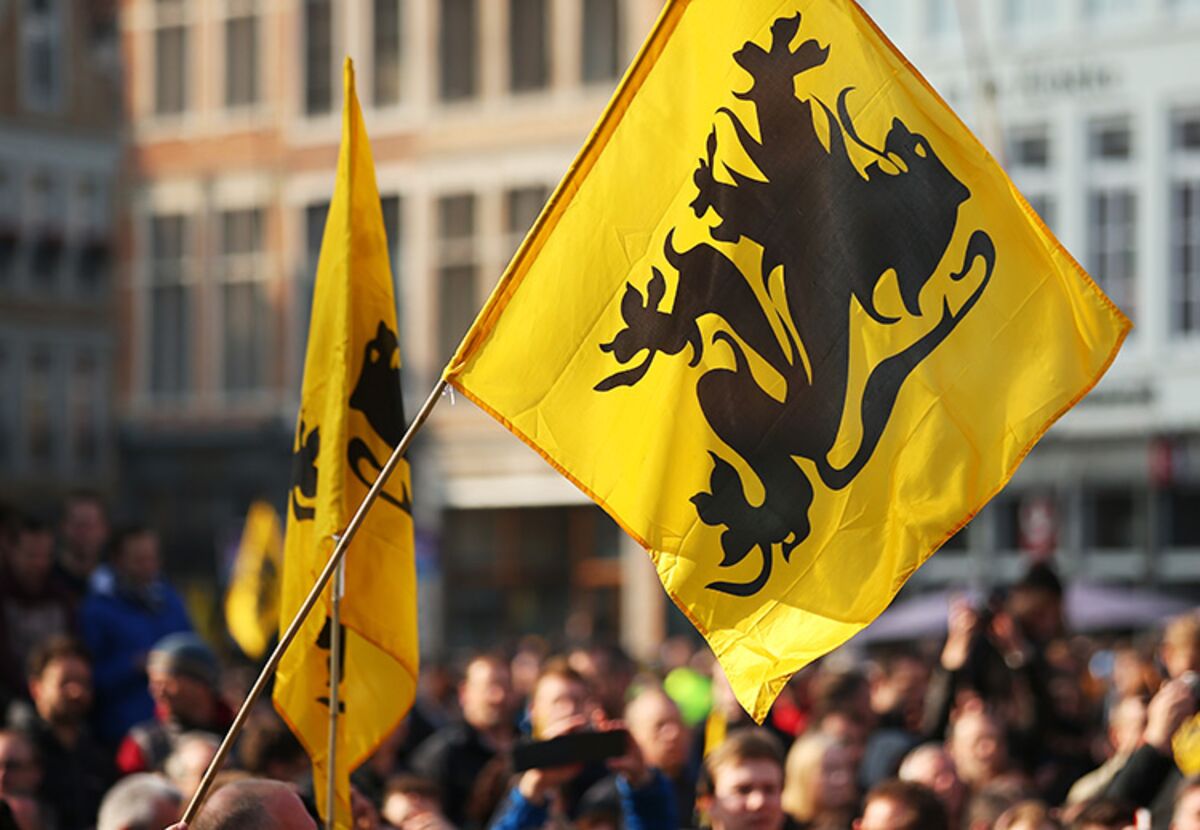
Catalan separatists seeking allies in the European Union may have to look further than the Flemish speaking enclave in Belgium, where nationalists say they are keeping their distance from Catalonia’s chaotic drive for independence.
“I don’t really believe that the Flemish people as such look at the Catalan situation as a sort of precedent, merely as an interesting case to be studied,” Joachim Pohlmann, a spokesman for the nationalist New Flemish Alliance party in Flanders, said Oct. 26 in a telephone interview as the Catalans careened toward a declaration of independence on Friday. “The situation in Catalonia and Spain is entirely different from the situation in Belgium.”
To read more about Catalonia’s push for independence, click here
Belgium thrust itself into the middle of the debate over Catalan succession when Prime Minister Charles Michel, who relies on Flemish support to rule, condemned Madrid’s use of violence during an illegal referendum in the Spanish region on Oct. Despite the EU’s steadfast support of Spanish Prime Minister Mariano Rajoy and its rejection of the need for international mediation, Michel’s words caused consternation in Madrid.
After Catalan President Carles Puigdemont claimed victory in the makeshift ballot at the start of the month, weeks of brinkmanship between Madrid and Barcelona came to a head on Friday when the regional parliament approved a declaration of independence in a secret ballot. Rajoy, wielding powers given to him by the Spanish senate, dissolved the Catalan parliament and delegated his deputy, Soraya Saenz de Santamaria, to become head of the regional government.
No EU Action
EU leaders from Germany’s Angela Merkel to France’s Emmanuel Macron have repeatedly voiced their support for Spain’s stance over Catalonia and on Friday Donald Tusk, the European Council president, said the EU would pay no attention to the Catalan vote.
“For the EU nothing changes,” Tusk said in a Tweet. “Spain remains our only interlocutor.”
While there have been informal talks between the New Flemish Alliance and its counterpart in Catalonia, Pohlmann said internal issues in Spain are for them to decide.
“It’s not for us to decide whether Catalonia should be independent or not,” Pohlmann said. “It’s the principle of self-determination that we support, and whether the Catalans decide to be independent or part of Spain is their choice and nobody else’s.”
To read about future options for Catalonia, click here
Flanders, the wealthier, trade-intensive northern part of Belgium, which is home to about 6.4 million inhabitants, has historically been at odds with its more rural, southern French-speaking neighbors in Wallonia. The New Flemish Alliance supports independence for Flanders, a region that provides 58 percent of Belgium’s gross domestic product. Wallonia contributes about 28 percent.
The New Flemish Alliance blocked the organization of a Belgian government for 541 days after the 2010 election. The party put aside its separatist tendencies and joined the ruling coalition when power beckoned four years later.
More than the actual independence and use of violence, it’s the thinking and values behind the Catalans’ actions that the Flemish separatists worry about. Weighing in on the drama, Flemish Government chief Geert Bourgeois told RTL radio in an Oct. 22 interview that he doesn’t “understand the attitude of the Spanish government and I don’t understand either the attitude of Europe. There are fundamental values that are being questioned.”
— With assistance by Ben Sills.


0 comments:
Post a Comment